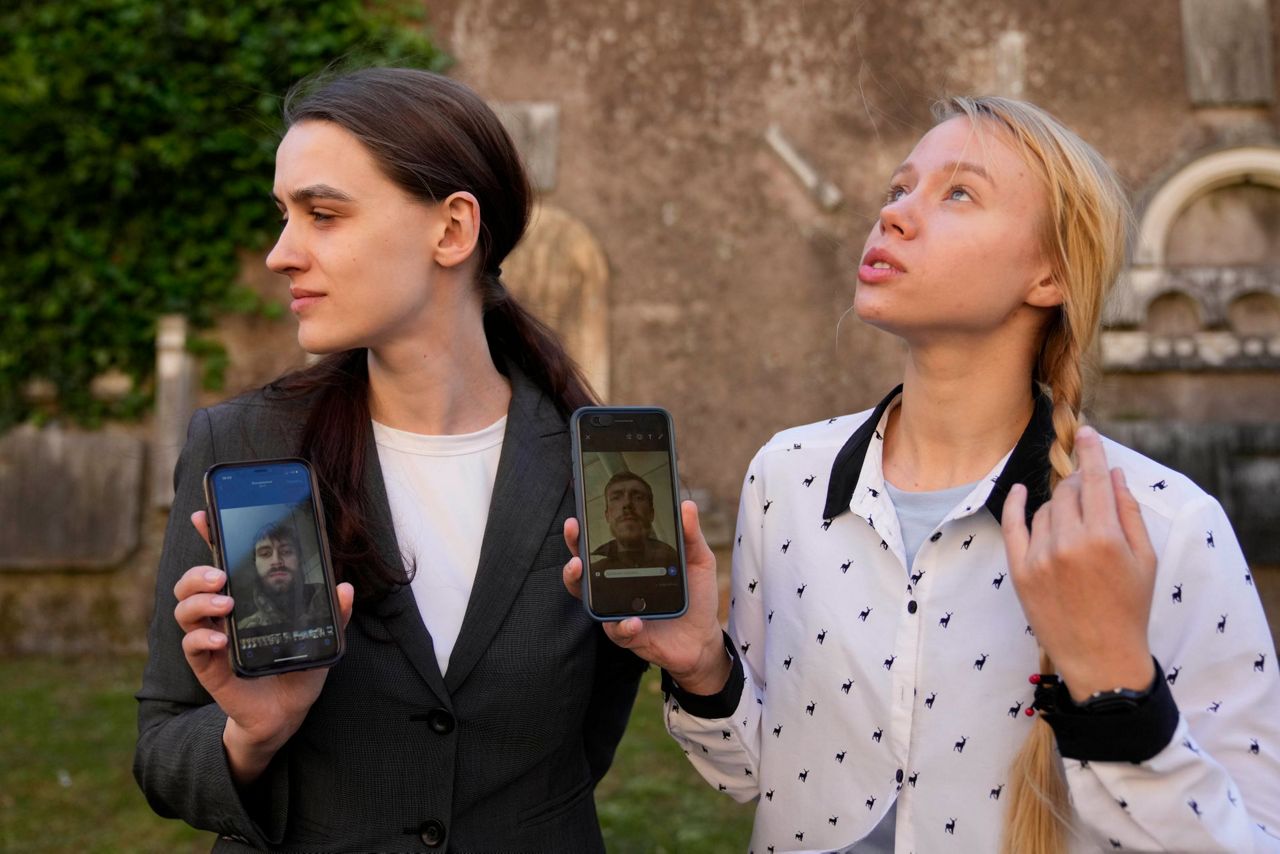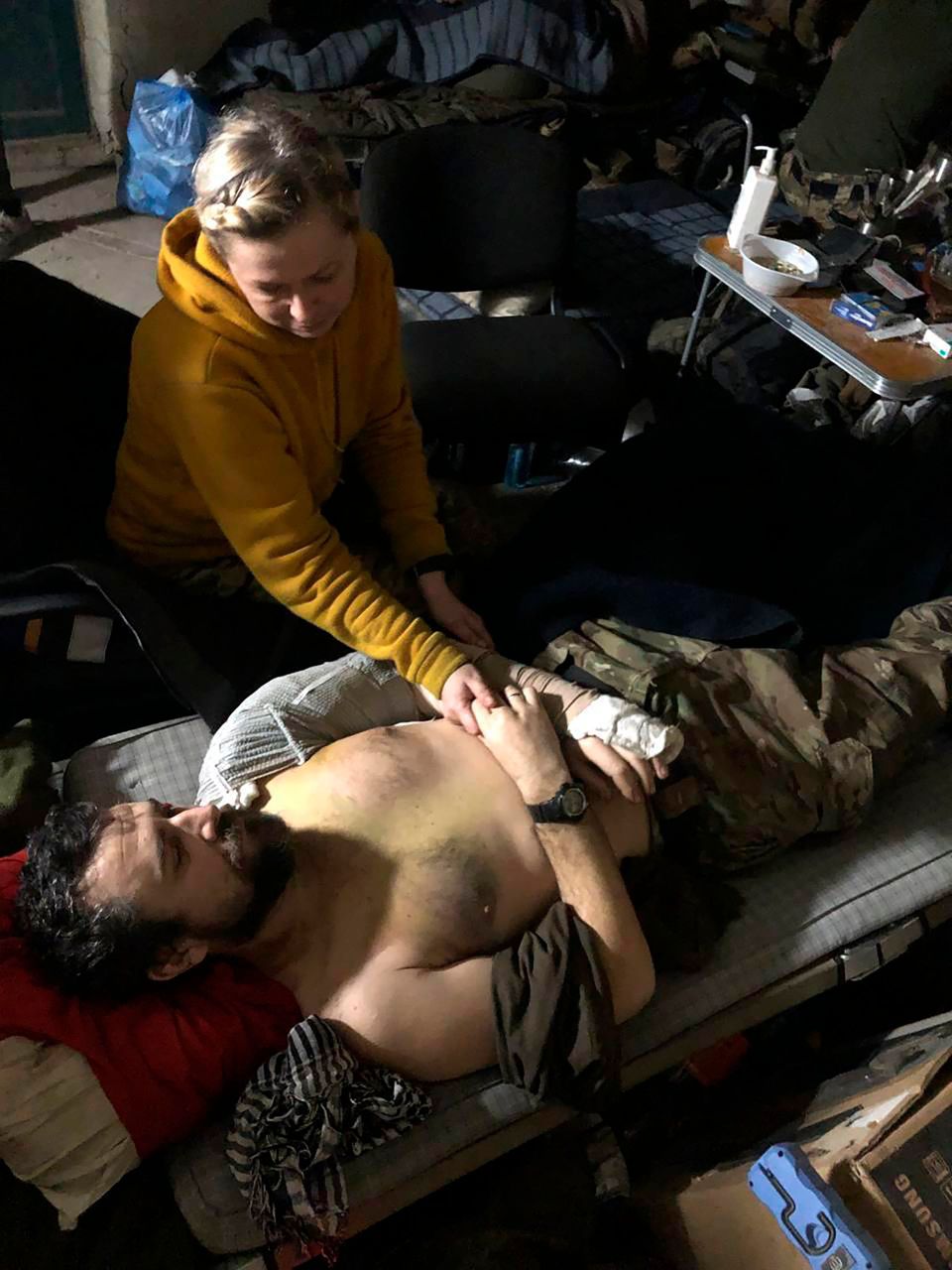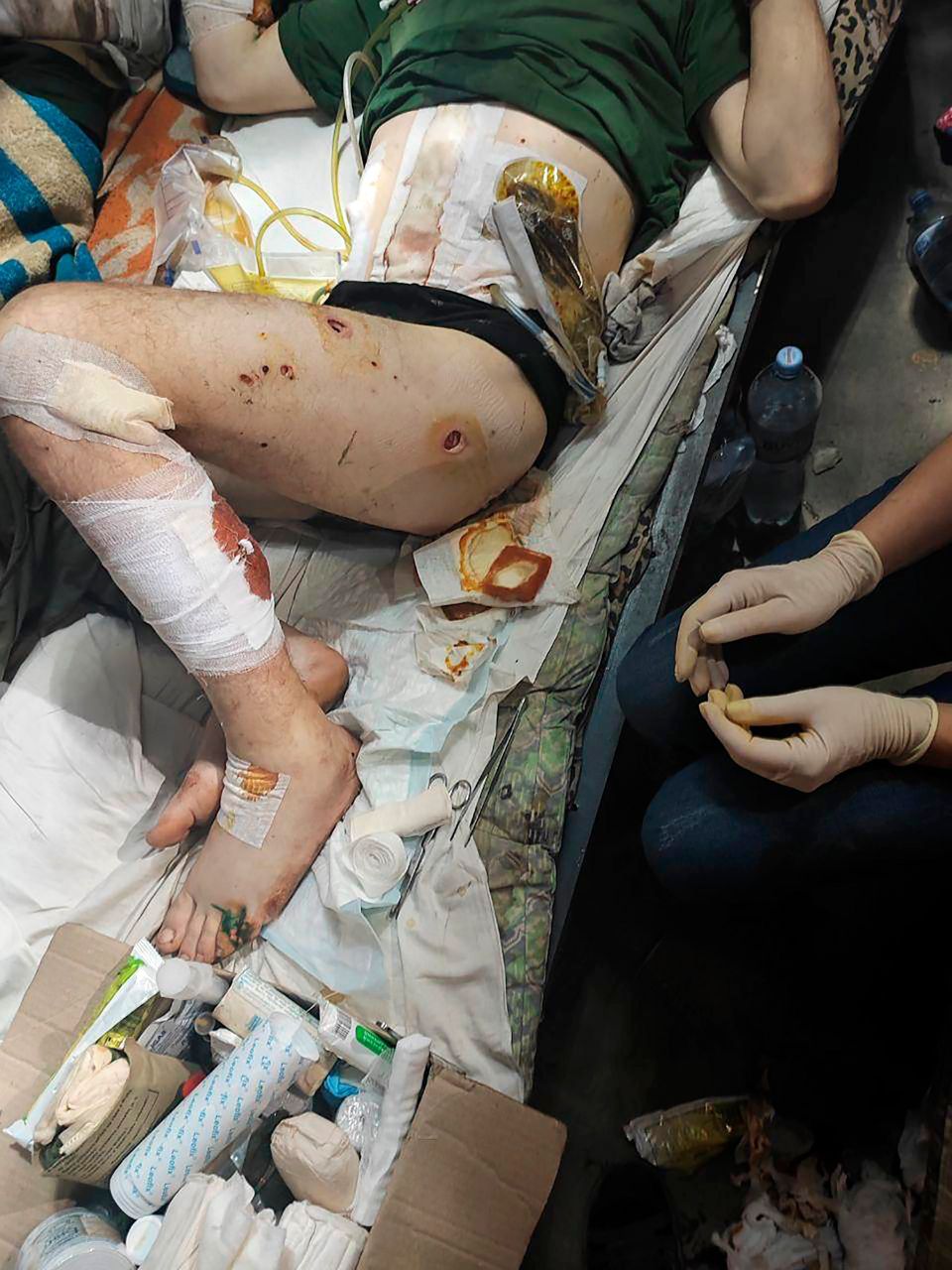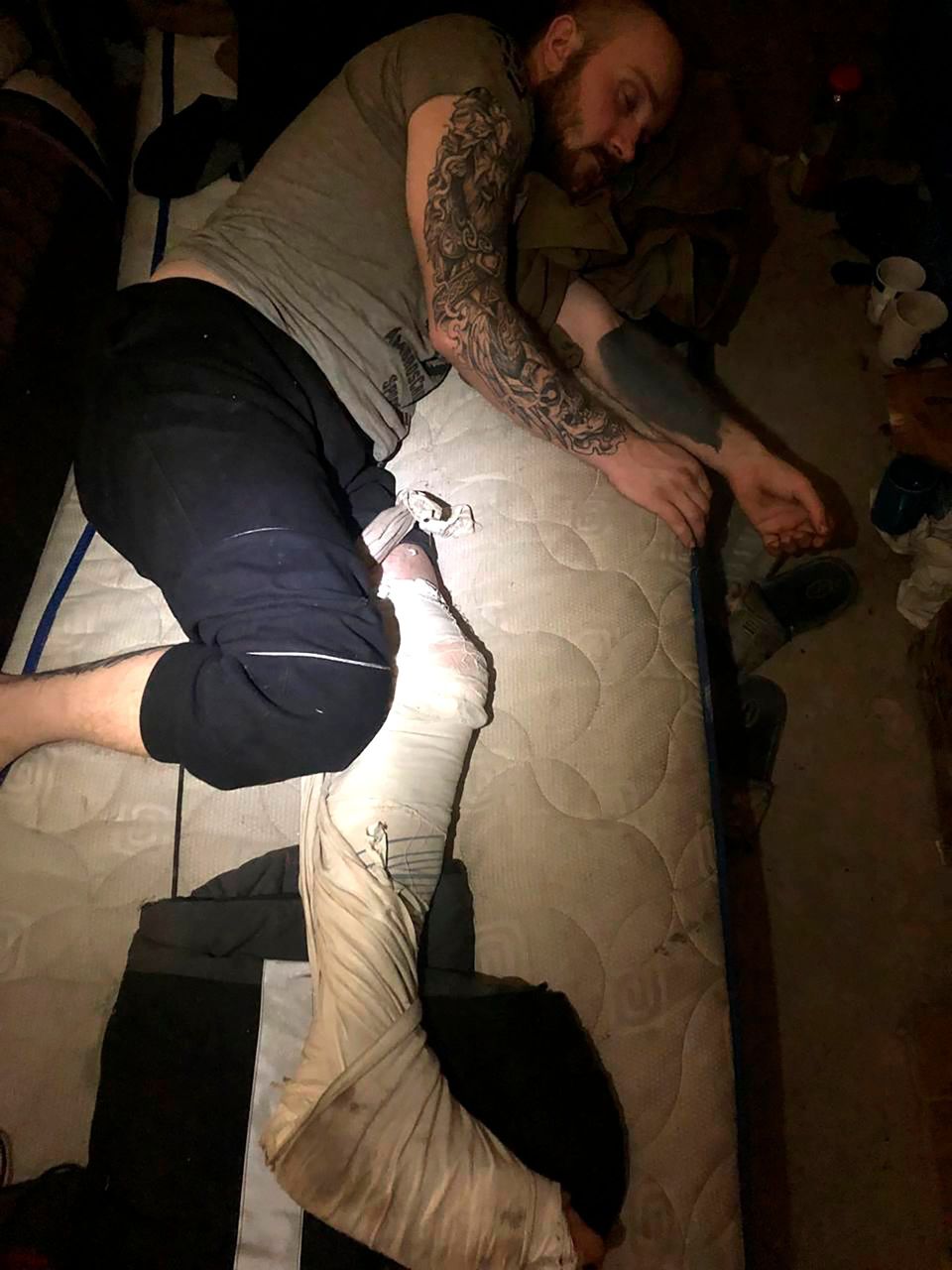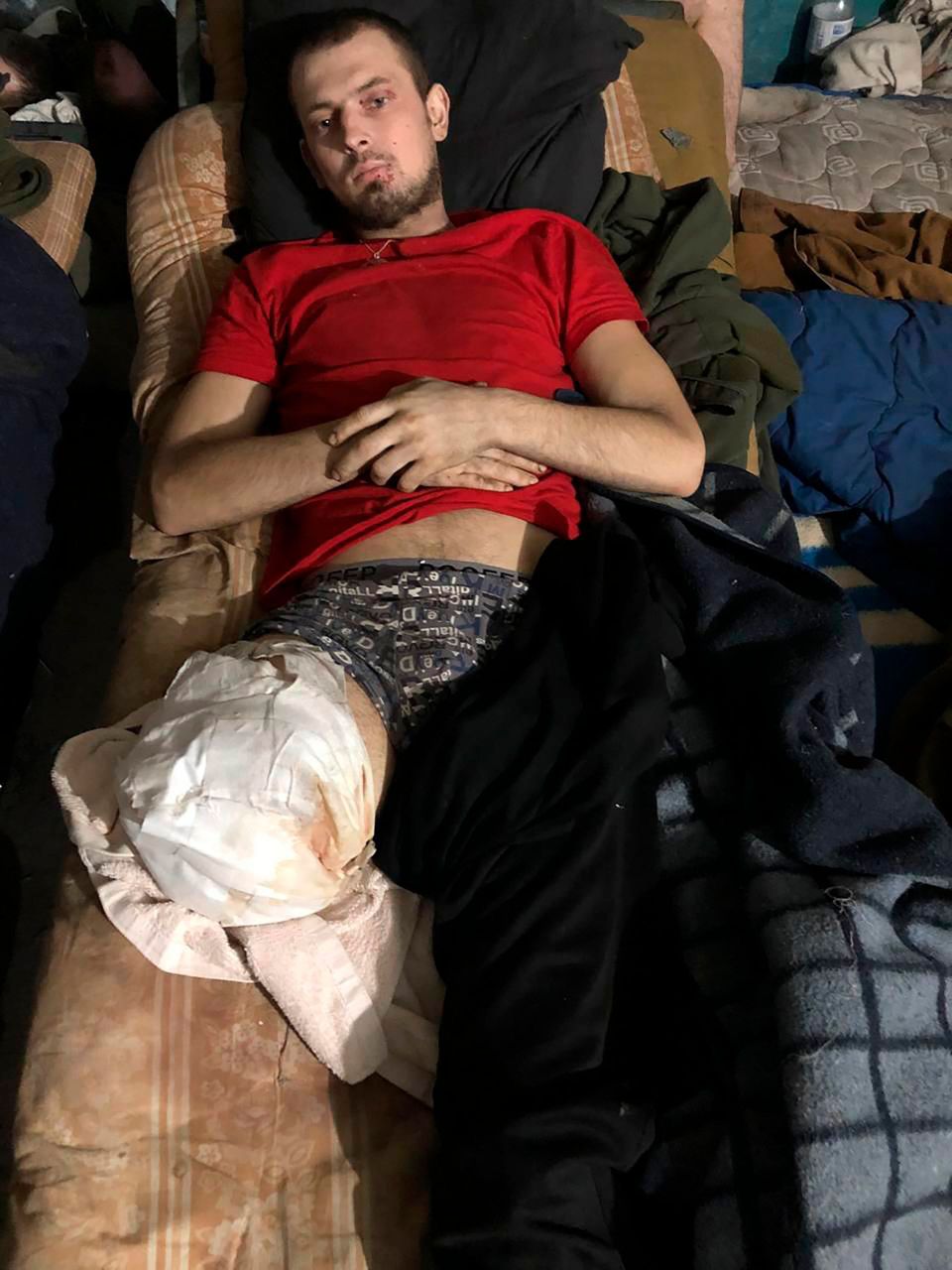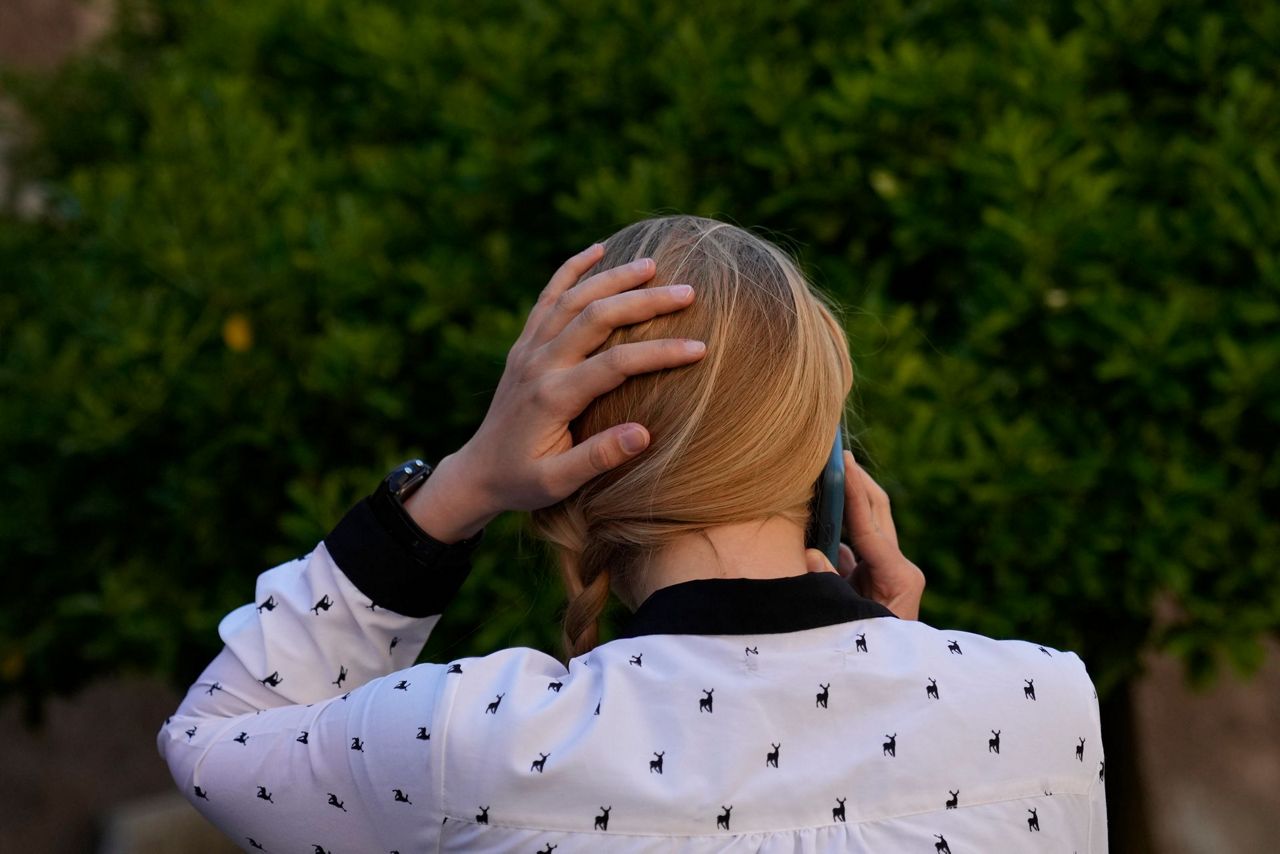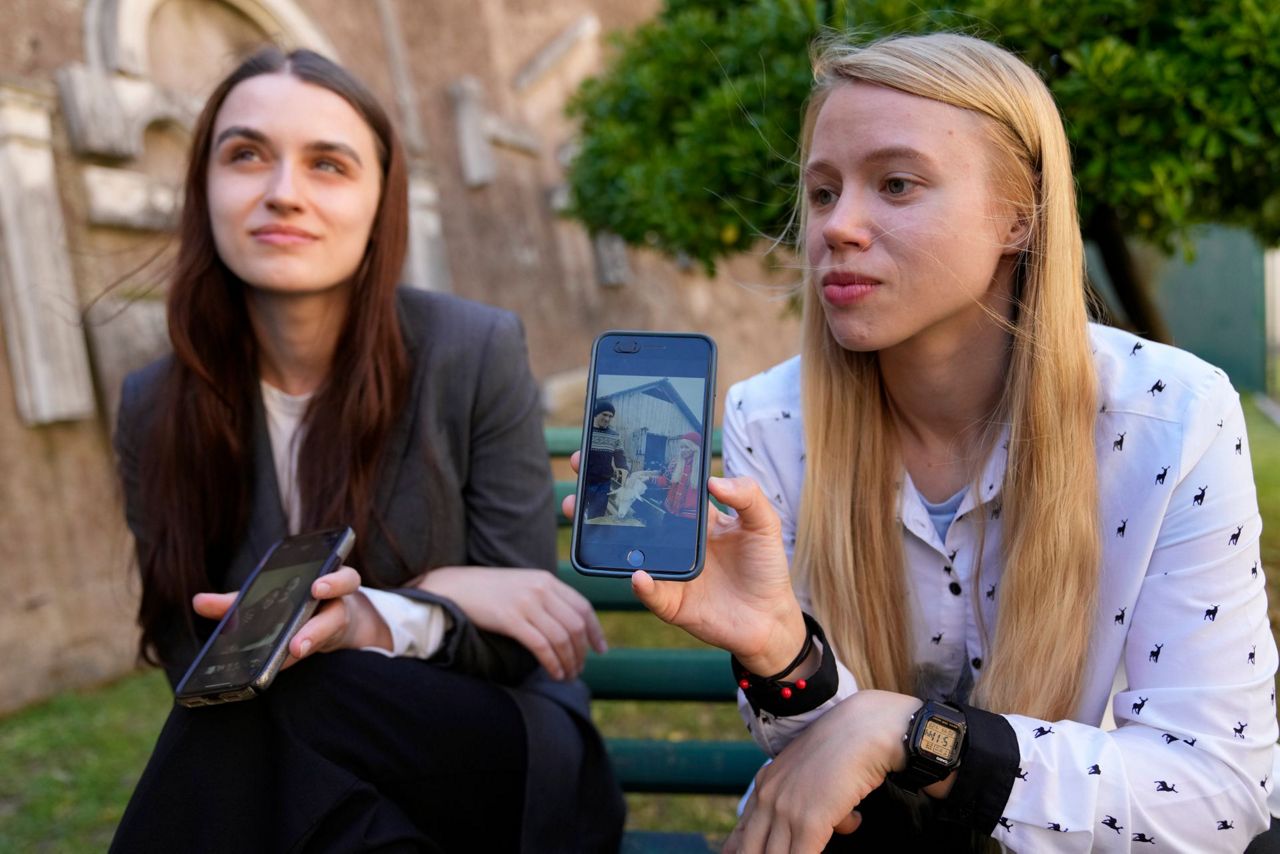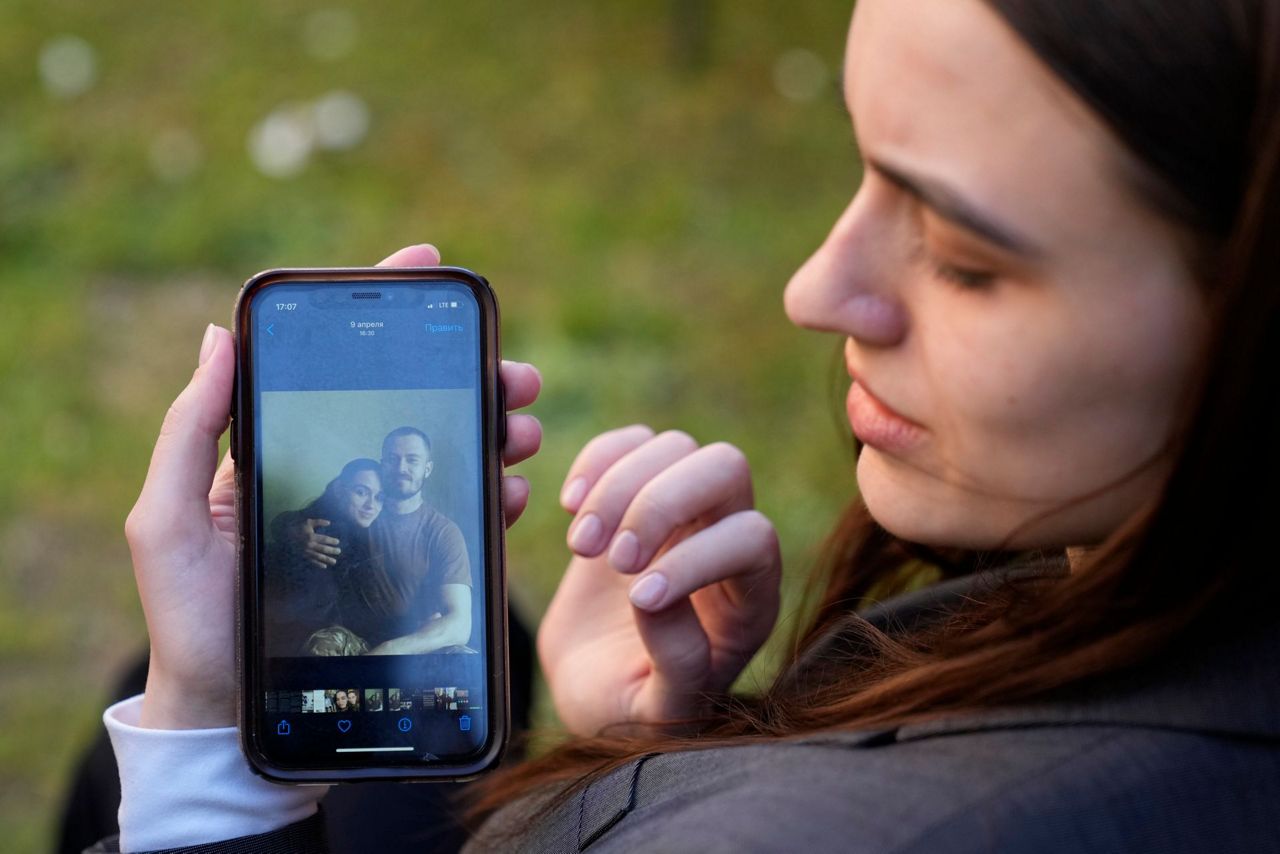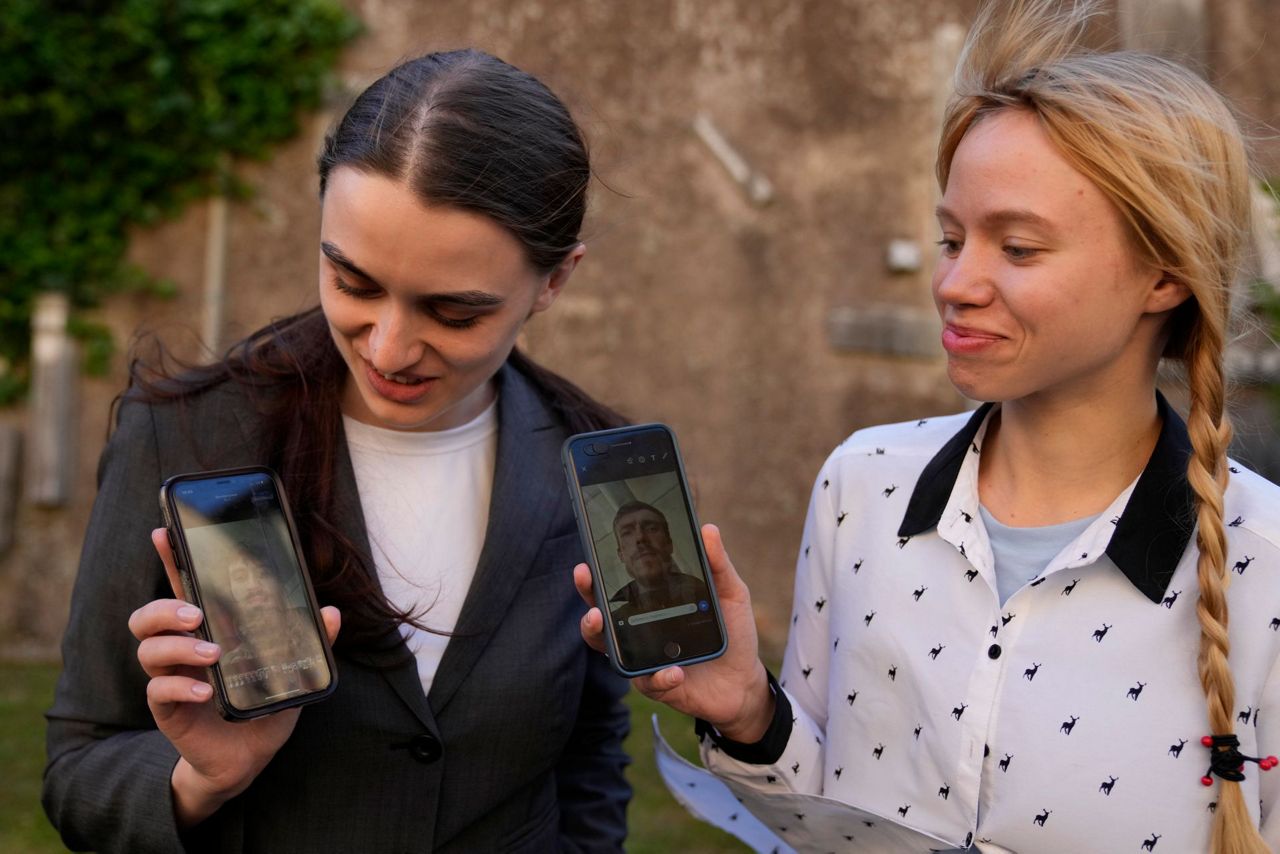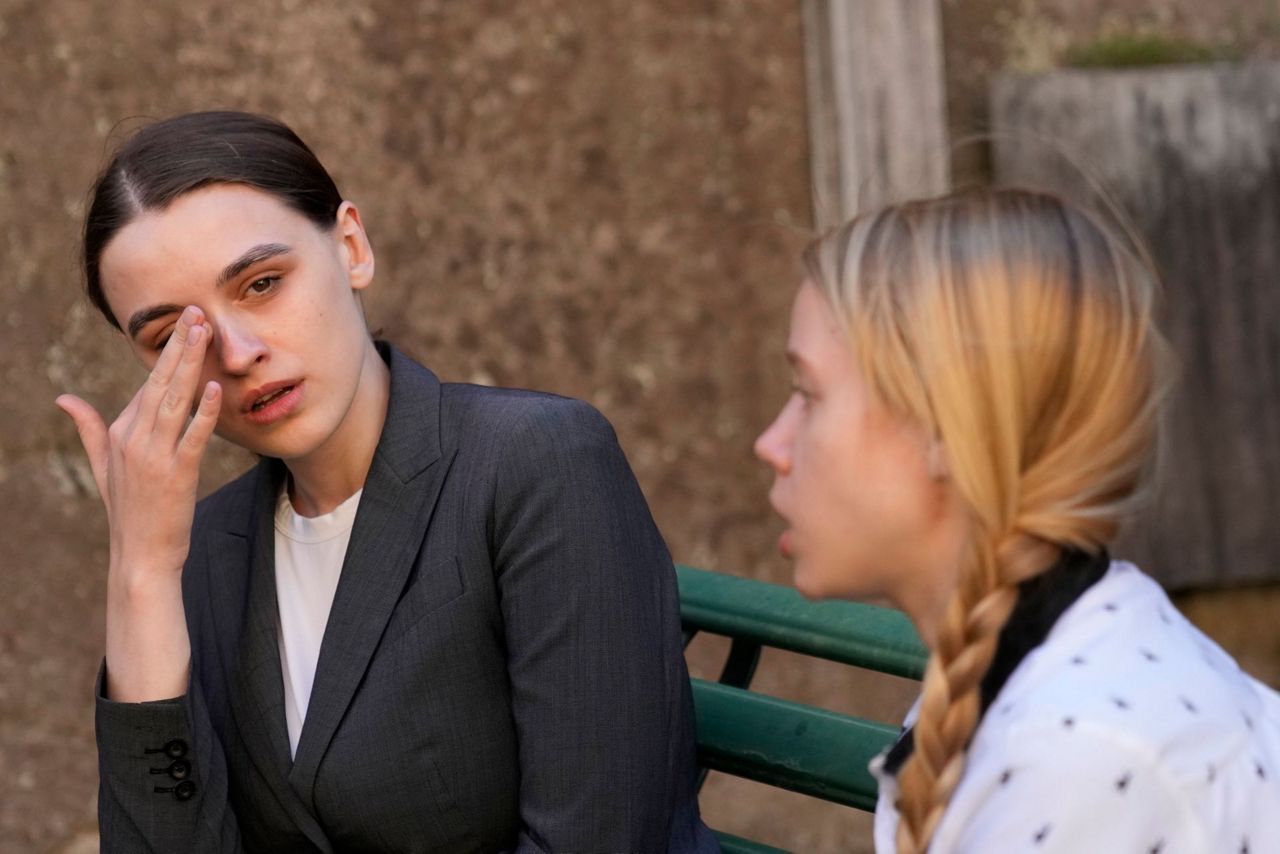ROME (AP) — Two Ukrainian women whose husbands are defending a besieged steel plant in the southern city of Mariupol are calling for any evacuation of civilians to also include soldiers, saying they fear the troops will be tortured and killed if left behind and captured by Russian forces.
“The lives of soldiers matter too. We can’t only talk about civilians,” said Yuliia Fedusiuk, 29, the wife of Arseniy Fedusiuk, a member of the Azov Regiment in Mariupol.
She and Kateryna Prokopenko, whose husband, Denys Prokopenko, is the Azov commander, made their appeal in Rome on Friday for international assistance to evacuate the Azovstal plant, the last stronghold of Ukrainian resistance in the strategic and now bombed-out port city.
An estimated 2,000 Ukrainian defenders and 1,000 civilians are holed up in the plant's vast underground network of bunkers, which are able to withstand airstrikes. But conditions there have grown more dire, with food, water and medicine running out, after Russian forces dropped “bunker busters” and other munitions in recent days.
The United Nations has said Secretary-General António Guterres and Russian President Vladimir Putin agreed on arranging evacuations from the plant during a meeting this week in Moscow, with the U.N. and International Committee of the Red Cross involved. But the discussions as reported by the U.N. concerned civilians, not combatants.
Speaking in English, Prokopenko, 27, called for a Dunkirk-style mission, a reference to the 1940 World War II maritime operation in which hundreds of boats were launched to rescue over 330,000 British and Allied troops surrounded by German forces on the beaches of northern France.
“We can do this extraction operation ... which will save our soldiers, our civilians, our kids,” she said. “We need to do this right now, because people — every hour, every second — are dying.”
The women said 600 of the soldiers are wounded, with some suffering from gangrene. Video and images they shared with The Associated Press showed wounded men with stained bandages in need of changing; others had open wounds or amputated limbs.
The women said the images were taken sometime in the past week. The AP could not independently verify the date and location of the footage.
The men, who are not identified, say they eat just once a day and share as little as 1.5 liters (50 ounces) of water a day among four. Supplies inside the blockaded plant are depleting, they say.
One shirtless man spoke in obvious pain as he described his wounds: two broken ribs, a punctured lung and a dislocated arm that “was hanging on the flesh.” Another said he stepped on a mine that was dropped from a helicopter, leaving him with an open fracture in his leg.
A military doctor who appears on the video identified herself as an anesthesiologist treating the wounded at the Azovstal plant. She said she was working with a small team of doctors “in extremely hard conditions, under constant bombardment.”
“Our resources are extremely limited. Guys are literally dying before our eyes because we don’t have any possibility to evacuate them. There is no way to treat them properly," she said.
She appealed for the evacuation of the wounded soldiers, along with the trapped civilians. “We just ask, we beg, to give at least the slightest chance to save the life of these fighters. They deserve it," she said.
The Azov Regiment has its roots in the Azov Battalion, which was formed in 2014 by far-right activists at the start of the conflict in the east between Ukraine and Moscow-backed separatists, and which has elicited criticism for its tactics.
Fedusiuk said she and Prokopenko were seeking help from Europe, the United States and international organizations to find a diplomatic resolution to the Azovstal standoff.
And she said the troops would never surrender to Russian capture.
“We don’t know any Azov soldier who came (back) alive from Russian soldiers, from 2014, so they will be tortured and killed,” Fedusiuk said. "We know that definitely, so it is not an option for them.”
___
Associated Press writer Nicole Winfield in Rome contributed.
___
Follow all AP stories on the war in Ukraine at https://apnews.com/hub/russia-ukraine.
Copyright 2022 The Associated Press. All rights reserved. This material may not be published, broadcast, rewritten or redistributed without permission.



